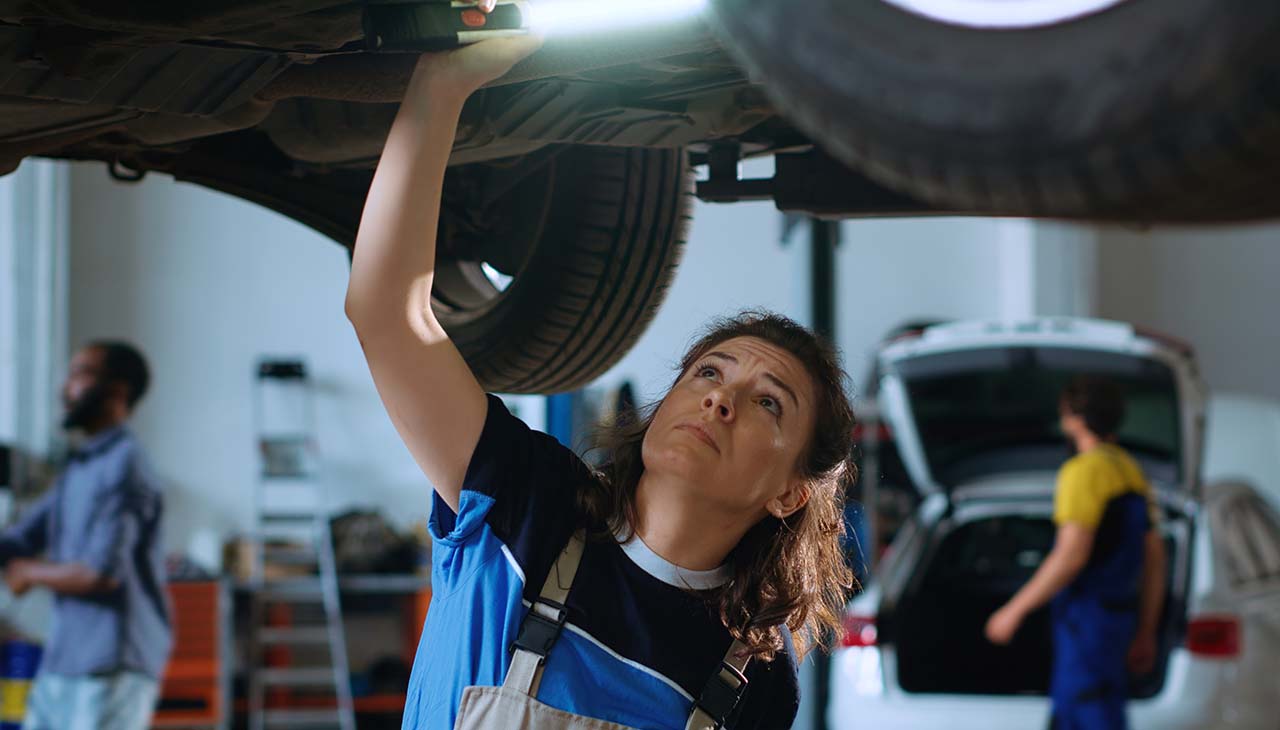Georgia’s unique climate, characterized by hot, humid summers and mild, but occasionally chilly winters, can pose several challenges for vehicle maintenance. Dealing with common car problems in this environment requires an understanding of how temperature fluctuations, humidity, and seasonal weather patterns can impact your vehicle’s performance and longevity. From the strain of air conditioning systems in the sweltering heat to the battery performance in colder temperatures, this guide aims to arm you with practical knowledge and tips to keep your car running smoothly, regardless of the weather.
Common Car Problems in Georgia
High Temperatures
- Impact on car batteries and overheating issues: High temperatures can significantly shorten the lifespan of your car’s battery. Heat accelerates chemical reactions within the battery, potentially leading to overcharging. Similarly, engines are more prone to overheating during the hot summer months, as the cooling system has to work harder to maintain a safe operating temperature.
- Tips for preventing overheating: Ensure your cooling system is in top condition by regularly checking the coolant level and the state of the radiator and hoses. Park in the shade whenever possible and use a windshield sun protector to minimize interior heat and reduce the burden on your air conditioning system.
Humidity
- Effects on engine performance and air conditioning systems: High humidity levels can affect the combustion process within your car’s engine, leading to decreased efficiency and performance. It also puts additional strain on your air conditioning system, requiring it to work harder to reduce moisture and cool the cabin air.
- Maintenance tips to combat humidity-related issues: Regularly replacing your car’s air filter can improve airflow and engine efficiency. Keep your air conditioning system clean and free of debris to ensure optimal performance. Inspect the system for any leaks or damage, especially before the onset of the humid season.
Heavy Rainfall
- Risks of hydroplaning and reduced visibility: Heavy rain can severely impact road conditions, increasing the likelihood of hydroplaning. Reduced visibility due to rain and spray from other vehicles can also make driving more hazardous.
- Precautionary measures for driving in heavy rain: Ensure your tires are in good condition, with sufficient tread depth to disperse water effectively. Reduce speed and increase following distances to allow more reaction time. Use headlights to improve visibility, both for you and other drivers.
Pollen and Tree Sap
- Impact on car exterior and windshield visibility: Pollen and tree sap can stick to your car’s exterior and windshield, impairing visibility and potentially damaging the paint if left unattended.
- Cleaning methods to protect your vehicle: Regular washing can help remove pollen and sap from your car’s surface. Applying a coat of wax can also provide a protective layer to make future cleaning easier. For the windshield and windows, use a cleaner designed for automotive glass to ensure clear visibility without streaks.
Maintenance Tips for Georgia’s Climate
Regular Inspections
- Importance of checking fluid levels and tire pressure: Regular checks of your vehicle’s fluid levels (including engine oil, coolant, brake fluid, and transmission fluid) and tire pressure are critical for maintaining performance and safety, especially in fluctuating temperatures. Inadequate fluid levels can lead to engine damage, while incorrect tire pressure can affect fuel efficiency and increase the risk of tire failures.
- Scheduled maintenance for optimal vehicle performance: Adhering to a scheduled maintenance plan is essential for ensuring that your vehicle operates efficiently and reliably, particularly in Georgia’s challenging climate. This includes routine oil changes, filter replacements, and system checks that can help prevent the common problems caused by extreme weather conditions.
Protective Measures
- Using car covers and sunshades to shield from extreme heat: To mitigate the effects of Georgia’s intense summer heat, employing car covers and sunshades can significantly reduce internal vehicle temperatures and protect the interior from UV damage and fading.
- Applying wax to protect the paint from pollen and sap: A good quality car wax not only enhances your vehicle’s appearance but also forms a protective barrier against corrosive substances like pollen and tree sap. Regular waxing can help preserve the paintwork and make cleaning easier, maintaining the vehicle’s value and aesthetics.
Emergency Preparedness
Roadside Emergency Kit
Having a well-equipped roadside emergency kit in your vehicle is essential for ensuring safety and preparedness in the face of unexpected car troubles. Such a kit should include items like a flashlight and extra batteries, a first aid kit, reflective warning triangles, a fire extinguisher, jumper cables, and basic repair tools. Additionally, keeping non-perishable food items, water, and blankets can be lifesavers in case you’re stranded for an extended period. The unpredictable weather in Georgia, from intense heat waves to sudden heavy rainfall, further underscores the importance of being prepared for any situation on the road.
Roadside Assistance Services
In addition to having a roadside emergency kit, knowing the contact information for reliable roadside assistance services is crucial. These services can provide help when you experience a breakdown, run out of gas, lock your keys in the car, or need a tow. Most insurance companies offer roadside assistance as part of their policy packages, so it’s wise to keep your provider’s contact number readily accessible in your vehicle. Additionally, national services like AAA provide 24/7 roadside assistance and can be invaluable resources during travel. Keeping these contact details in your vehicle, along with your emergency kit, will ensure you’re well-prepared for most roadside emergencies.
